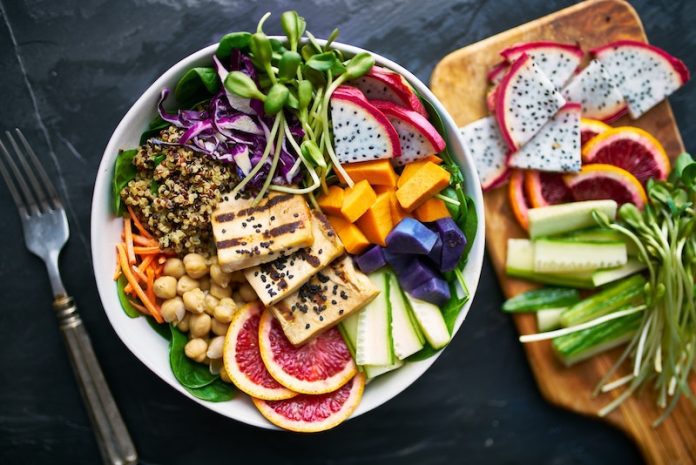
When most people think of protein, they imagine a big, juicy steak or a grilled chicken breast. But protein isn’t exclusive to animal products!
It’s an essential nutrient that builds, maintains, and repairs our body’s tissues. Everyone needs protein, whether you eat meat or not.
As the popularity of vegan diets has risen, a common question has surfaced: “Where do vegans get their protein?”
Vegan Protein Sources: Beyond the Meat
Surprisingly for some, plants can pack a protein punch! A vegan diet, which excludes all animal products, can still provide ample protein if planned correctly. Here are some top plant-based protein sources, backed by research:
Legumes: Lentils, chickpeas, and beans are protein-rich. A cup of lentils, for instance, contains 18 grams of protein – almost the same as three eggs!
Tofu and Tempeh: Both are made from soybeans. Tofu, also known as bean curd, is versatile and can be used in everything from stir-fries to desserts. Tempeh, on the other hand, has a nuttier flavor and is excellent in sandwiches or salads.
Quinoa: Unlike many plant sources, quinoa contains all nine essential amino acids, making it a ‘complete protein’. Just one cup of cooked quinoa has 8 grams of protein.
Nuts and Seeds: Almonds, peanuts, chia seeds, flaxseeds, and hemp seeds are not just tasty but also high in protein.
Research on Vegan Diets and Protein
Scientific studies have consistently shown that a well-planned vegan diet can provide all the protein an individual needs.
A study published in the American Journal of Clinical Nutrition found that vegan diets can meet or exceed recommended protein intakes, provided they include a variety of plant sources.
Another research piece from the Journal of the International Society of Sports Nutrition highlighted that both animal-based and plant-based proteins can support muscle strength and mass gains in response to resistance training.
However, it’s essential for vegans to consume a diverse range of protein sources to ensure they’re getting all essential amino acids.
Additionally, a comprehensive review in the Nutrition Journal pointed out that not only can plant-based diets meet protein needs, but they also offer additional health benefits.
Vegan diets are typically lower in saturated fats and cholesterol. They’re also high in dietary fiber, vitamins, and phytonutrients, which can help reduce the risk of chronic diseases like heart disease and type 2 diabetes.
Making Smart Vegan Protein Choices
If you’re considering a vegan diet or are just curious about plant-based protein, here’s what you can do:
Diversify: Make sure to include a variety of protein sources in your meals. This way, you’ll get all the essential amino acids your body needs.
Plan Ahead: Especially if you’re new to veganism, plan your meals. This ensures you’re getting enough protein and other essential nutrients.
Listen to Your Body: Every individual is different. Monitor how you feel and adjust your diet accordingly. If you’re ever unsure, consider consulting a nutritionist or dietitian who can provide personalized advice.
Conclusion
Going vegan doesn’t mean you have to compromise on protein. Mother Nature offers a buffet of plant-based protein options, and research confirms that with a bit of planning and variety, a vegan diet can meet all our protein needs.
So, next time someone asks, “Where do you get your protein?”, you’ll have a whole list of plant-powered answers!
If you care about nutrition, please read studies about how the Mediterranean diet could protect your brain health, and the best time to take vitamins to prevent heart disease.
For more information about nutrition, please see recent studies that olive oil may help you live longer, and vitamin D could help lower the risk of autoimmune diseases.
Follow us on Twitter for more articles about this topic.
Copyright © 2023 Scientific Diet. All rights reserved.





